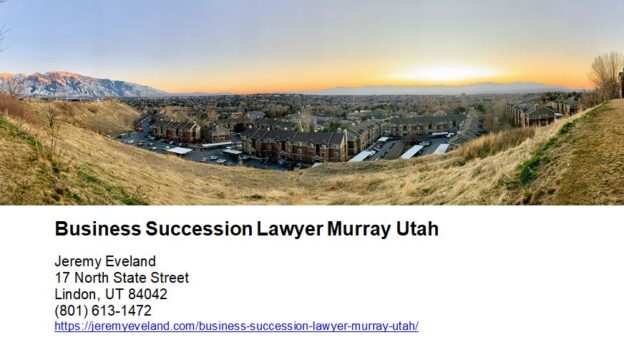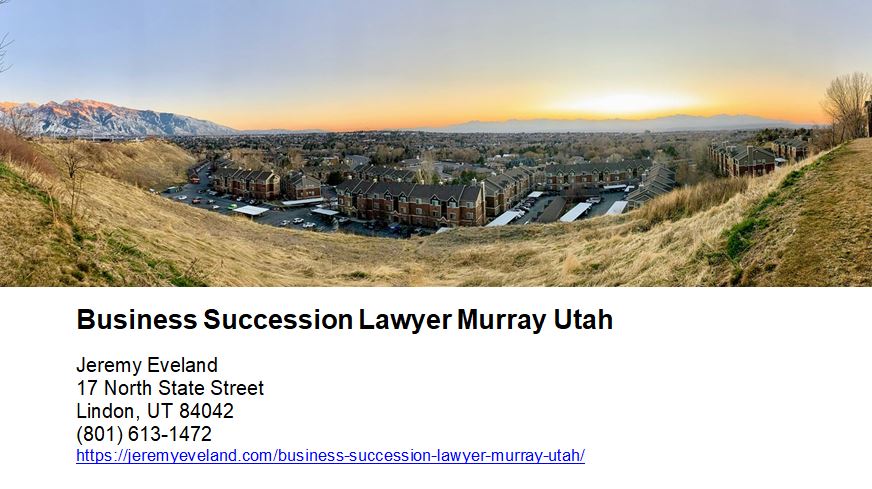Estate Planning Lawyer Salt Lake City Utah
-
Utah Lawyer
- Introduction
- Estate Planning in Salt Lake City: How to Choose the Right Lawyer for Your Needs
- Estate Planning in Salt Lake City: Understanding the Probate Process
- Estate Planning in Salt Lake City: What You Need to Know About Trusts
- Estate Planning in Salt Lake City: How to Find the Right Attorney
- Estate Planning Lawyer Salt Lake City Utah: What You Need to Know
- Last Will and Testaments
- Powers of Attorney
- Estate Creating and Estate Administration
- Q&A
“Secure Your Future with an Estate Planning Lawyer in Salt Lake City, Utah”
Introduction
Welcome to Estate Planning Lawyer Salt Lake City Utah. We are a team of experienced attorneys dedicated to helping individuals and families in the Salt Lake City area with their estate planning needs. Our attorneys have decades of experience in estate planning, probate, trust administration, and other related areas of law. We understand the importance of protecting your assets and providing for your loved ones. We strive to provide our clients with the highest quality legal services and advice. Our goal is to ensure that your estate plan is tailored to your individual needs and goals. We look forward to helping you with all of your estate planning needs.
Estate Planning in Salt Lake City: How to Choose the Right Lawyer for Your Needs
When it comes to estate planning in Salt Lake City, it is important to choose the right lawyer for your needs. Estate planning is a complex process that requires the expertise of a qualified attorney. The right lawyer can help you create a plan that meets your goals and protects your assets. Here are some tips to help you find the right lawyer for your estate planning needs in Salt Lake City.
1. Research Your Options: Before you begin your search for an estate planning lawyer, it is important to research your options. Look for attorneys who specialize in estate planning and have experience in the Salt Lake City area. Check out their websites and read reviews from past clients to get an idea of their experience and expertise.
2. Ask for Referrals: Ask your friends, family, and colleagues for referrals to estate planning lawyers in Salt Lake City. This is a great way to get an idea of who is reputable and experienced in the area.
3. Schedule a Consultation: Once you have narrowed down your list of potential lawyers, it is important to schedule a consultation. During the consultation, ask questions about their experience, fees, and services. This will help you determine if the lawyer is a good fit for your needs.
4. Check References: Before you make a final decision, it is important to check references. Ask the lawyer for references from past clients and contact them to get an idea of their experience with the lawyer.
By following these tips, you can find the right lawyer for your estate planning needs in Salt Lake City. With the right lawyer, you can create a plan that meets your goals and protects your assets.
Estate Planning in Salt Lake City: Understanding the Probate Process
Estate planning is an important part of life for many people in Salt Lake City. It is important to understand the probate process in order to ensure that your estate is handled properly and that your wishes are carried out.
The probate process is the legal process of administering a deceased person’s estate. This includes collecting and valuing the assets of the deceased, paying any debts and taxes, and distributing the remaining assets to the beneficiaries. The probate process is overseen by the court and is supervised by a personal representative, also known as an executor.
In Salt Lake City, the probate process begins when the personal representative files a petition with the court. This petition includes information about the deceased, their assets, and any debts or taxes that need to be paid. The court will then issue a notice to all interested parties, such as creditors and beneficiaries, informing them of the probate process.
Once the petition is filed, the court will appoint a personal representative to oversee the probate process. The personal representative is responsible for collecting and valuing the assets of the deceased, paying any debts and taxes, and distributing the remaining assets to the beneficiaries. The personal representative must also file an inventory of the assets with the court.
The probate process can be a lengthy and complicated process. It is important to work with an experienced estate planning attorney to ensure that the process is handled properly and that your wishes are carried out. An attorney can help you understand the probate process and ensure that all of the necessary steps are taken.
Estate planning is an important part of life for many people in Salt Lake City. Understanding the probate process is essential to ensure that your estate is handled properly and that your wishes are carried out. Working with an experienced estate planning attorney can help you navigate the probate process and ensure that your wishes are carried out.
Estate Planning in Salt Lake City: What You Need to Know About Trusts
Estate planning is an important part of financial planning for individuals and families in Salt Lake City. Trusts are a key component of estate planning, and understanding how they work is essential for creating an effective plan.
A trust is a legal arrangement in which a person, known as the grantor, transfers assets to a trustee to manage for the benefit of a third party, known as the beneficiary. The trustee is responsible for managing the trust assets and distributing them according to the grantor’s wishes. Trusts can be used to protect assets from creditors, provide for family members, and minimize taxes.
There are several types of trusts available in Salt Lake City. Revocable trusts are the most common type of trust and allow the grantor to change the terms of the trust at any time. Irrevocable trusts are more permanent and cannot be changed without the consent of the beneficiary. Special needs trusts are designed to provide for the care of a disabled beneficiary, while charitable trusts are used to provide for a charitable organization.
When creating a trust, it is important to consider the tax implications. Trusts can be used to minimize taxes, but they can also create additional tax liabilities. It is important to consult with a qualified estate planning attorney to ensure that the trust is structured properly and that all tax implications are taken into account.
Trusts can be a powerful tool for estate planning in Salt Lake City. They can provide asset protection, minimize taxes, and provide for family members. However, it is important to understand the different types of trusts and the tax implications before creating a trust. Consulting with a qualified estate planning attorney is the best way to ensure that the trust is structured properly and that all tax implications are taken into account.
Estate Planning in Salt Lake City: How to Find the Right Attorney
Estate planning is an important part of ensuring that your assets are distributed according to your wishes after you pass away. It is important to find an experienced attorney who can help you create a comprehensive estate plan that meets your needs. If you live in Salt Lake City, there are several steps you can take to find the right attorney for your estate planning needs.
First, you should ask for referrals from friends, family, and colleagues who have used an estate planning attorney in the past. Ask them about their experience with the attorney and whether they would recommend them. You can also check online reviews to get an idea of the attorney’s reputation.
Second, you should research the attorneys in your area. Look for attorneys who specialize in estate planning and have experience in the area. You can also check the Utah State Bar Association website to find out if the attorney is in good standing.
Third, you should contact the attorneys you are considering and ask them questions about their experience and qualifications. Ask them about their fees and how they handle estate planning cases. You should also ask them about their approach to estate planning and how they can help you create a comprehensive plan.
Finally, you should meet with the attorneys you are considering in person. This will give you an opportunity to get to know them and ask any additional questions you may have. It is important to find an attorney who you feel comfortable with and who you trust to handle your estate planning needs.
By following these steps, you can find the right attorney for your estate planning needs in Salt Lake City. With the right attorney, you can create a comprehensive estate plan that meets your needs and ensures that your assets are distributed according to your wishes.
Estate Planning Lawyer Salt Lake City Utah: What You Need to Know
Estate planning is an important part of financial planning for individuals and families in Salt Lake City, Utah. Estate planning involves the preparation of documents that will ensure that your wishes are carried out after you pass away. It also involves the management of your assets during your lifetime.
A qualified estate planning lawyer in Salt Lake City, Utah can help you create a comprehensive estate plan that meets your needs. An estate planning lawyer can help you create a will, trust, and other documents that will ensure that your wishes are carried out after you pass away. They can also help you manage your assets during your lifetime, such as setting up a power of attorney or creating a living will.
When selecting an estate planning lawyer in Salt Lake City, Utah, it is important to choose someone who is experienced and knowledgeable in the area of estate planning. You should also make sure that the lawyer is familiar with the laws in Utah and can provide you with the best advice for your situation.
It is also important to find an estate planning lawyer who is willing to work with you to create a plan that meets your needs. The lawyer should be willing to listen to your wishes and provide you with the best advice for your situation.
Finally, it is important to find an estate planning lawyer who is willing to work with you to ensure that your wishes are carried out after you pass away. The lawyer should be willing to help you create a plan that meets your needs and ensure that your wishes are carried out after you pass away.
Last Will and Testaments
A Last Will and Testament is a legal document that outlines how a person’s assets and property will be distributed upon their death. It is important to have a Last Will and Testament in place to ensure that your wishes are carried out and that your loved ones are taken care of.
When creating a Last Will and Testament, it is important to be as specific as possible. You should include detailed information about your assets, such as bank accounts, real estate, investments, and other property. You should also include instructions on how you would like your assets to be distributed.
It is also important to name an executor of your estate. This person will be responsible for carrying out the instructions in your Last Will and Testament. You should also name a guardian for any minor children you may have.
It is important to have your Last Will and Testament witnessed and signed by two people who are not beneficiaries of your estate. This will ensure that your wishes are legally binding.
Once your Last Will and Testament is complete, it is important to keep it in a safe place. You should also make sure that your executor and other beneficiaries are aware of its existence.
Creating a Last Will and Testament is an important step in ensuring that your wishes are carried out after your death. It is important to take the time to create a document that is thorough and legally binding.
Powers of Attorney
A power of attorney (POA) is a legal document that grants someone else the authority to act on your behalf in a variety of situations. It is important to understand the different types of POAs and the implications of granting someone else the power to act on your behalf.
A general POA grants broad authority to the person you designate to act on your behalf. This type of POA is often used when someone is unable to handle their own affairs due to illness or disability. The person you designate will be able to make decisions regarding your finances, property, and other matters.
A limited POA grants specific authority to the person you designate to act on your behalf. This type of POA is often used when someone needs help with a specific task, such as selling a house or signing a contract. The person you designate will only be able to make decisions regarding the specific task outlined in the POA.
A durable POA is a type of POA that remains in effect even if you become incapacitated. This type of POA is often used when someone wants to ensure that their affairs will be handled in the event of their incapacitation.
It is important to understand the implications of granting someone else the power to act on your behalf. You should carefully consider the person you designate to act on your behalf and make sure that they are trustworthy and capable of handling the task. You should also make sure that the POA is properly drafted and signed in accordance with the laws of your state.
Estate Creating and Estate Administration
Estate Creation
Estate creation is the process of planning for the transfer of assets from one generation to the next. It involves the creation of legal documents such as wills, trusts, and other estate planning instruments. Estate creation is an important part of financial planning and can help ensure that your assets are distributed according to your wishes.
When creating an estate plan, it is important to consider the tax implications of your decisions. Estate taxes can be a significant burden on your heirs, so it is important to understand the tax implications of your estate plan. Additionally, it is important to consider the impact of inflation on your estate plan. Inflation can reduce the value of your assets over time, so it is important to plan for inflation when creating your estate plan.
Estate creation also involves the selection of an executor or trustee. An executor is responsible for carrying out the terms of your will, while a trustee is responsible for managing and distributing assets in accordance with the terms of a trust. It is important to select an executor or trustee who is trustworthy and knowledgeable about estate planning.
Estate Administration
Estate administration is the process of carrying out the terms of an estate plan. This includes collecting and distributing assets, paying debts, and filing taxes. Estate administration is typically handled by an executor or trustee.
The executor or trustee is responsible for ensuring that the estate is administered according to the terms of the will or trust. This includes collecting and distributing assets, paying debts, and filing taxes. The executor or trustee must also ensure that the estate is properly managed and that all assets are accounted for.
Estate administration can be a complex and time-consuming process. It is important to select an executor or trustee who is knowledgeable about estate planning and who is willing to take on the responsibility of administering the estate. Additionally, it is important to ensure that the executor or trustee is familiar with the laws and regulations that apply to estate administration.
Estate creation and administration are important parts of financial planning. It is important to understand the tax implications of your estate plan and to select an executor or trustee who is knowledgeable and trustworthy. Additionally, it is important to ensure that the estate is properly managed and that all assets are accounted for.
Q&A
1. What is an estate planning lawyer?
An estate planning lawyer is a professional who specializes in helping individuals and families plan for the future. They provide advice on how to best manage and protect assets, create wills and trusts, and plan for the distribution of assets upon death. They also help clients navigate the complexities of probate and estate taxes.
2. What services does an estate planning lawyer provide?
An estate planning lawyer can provide a variety of services, including drafting wills and trusts, creating powers of attorney, and helping clients navigate the complexities of probate and estate taxes. They can also provide advice on how to best manage and protect assets, and plan for the distribution of assets upon death.
3. What should I look for when choosing an estate planning lawyer?
When choosing an estate planning lawyer, it is important to look for someone who is experienced and knowledgeable in the area of estate planning. It is also important to find someone who is willing to take the time to understand your individual needs and goals. Additionally, it is important to find a lawyer who is willing to provide clear and concise advice.
4. How much does an estate planning lawyer cost?
The cost of an estate planning lawyer will vary depending on the complexity of the case and the services provided. Generally, estate planning lawyers charge an hourly rate or a flat fee for their services.
5. What is the difference between a will and a trust?
A will is a legal document that outlines how a person’s assets should be distributed upon their death. A trust is a legal entity that is created to manage and protect assets for the benefit of a beneficiary.
6. What is probate?
Probate is the legal process of administering a deceased person’s estate. This includes collecting and distributing assets, paying debts, and resolving any disputes that may arise.
7. What is an executor?
An executor is a person appointed by the court to manage the estate of a deceased person. The executor is responsible for collecting and distributing assets, paying debts, and resolving any disputes that may arise.
8. What is a power of attorney?
A power of attorney is a legal document that allows a person to appoint another person to act on their behalf in legal or financial matters. This document can be used to grant someone the authority to make decisions on behalf of the person granting the power of attorney.
Estate Planning Lawyer Salt Lake City Utah Consultation
When you need legal help with estate planning in Salt Lake City Utah call Jeremy D. Eveland, MBA, JD (801) 613-1472 for a consultation.
Jeremy Eveland
17 North State Street
Lindon UT 84042
(801) 613-1472
Related Posts
Business Lawyer West Jordan Utah
Irrevocable Life Insurance Trusts
What Is The Purpose Of A Business Attorney?
Business Transaction Lawyer Provo Utah
Trusted Personal Injury Attorneys in Utah
Legal Requirements to Start a Business
Real Estate Attorneys in Salt Lake City Utah
Business Contract Lawyer Riverton UT
Business Law and Intellectual Property
Commercial Litigation Strategies
Estate Planning Lawyer Salt Lake City Utah
[geocentric_weather id=”79414f66-9f4c-4a1a-9eaa-8bbae65c0683″]
[geocentric_about id=”79414f66-9f4c-4a1a-9eaa-8bbae65c0683″]
[geocentric_neighborhoods id=”79414f66-9f4c-4a1a-9eaa-8bbae65c0683″]
[geocentric_thingstodo id=”79414f66-9f4c-4a1a-9eaa-8bbae65c0683″]
[geocentric_busstops id=”79414f66-9f4c-4a1a-9eaa-8bbae65c0683″]
[geocentric_mapembed id=”79414f66-9f4c-4a1a-9eaa-8bbae65c0683″]
[geocentric_drivingdirections id=”79414f66-9f4c-4a1a-9eaa-8bbae65c0683″]
[geocentric_reviews id=”79414f66-9f4c-4a1a-9eaa-8bbae65c0683″]















